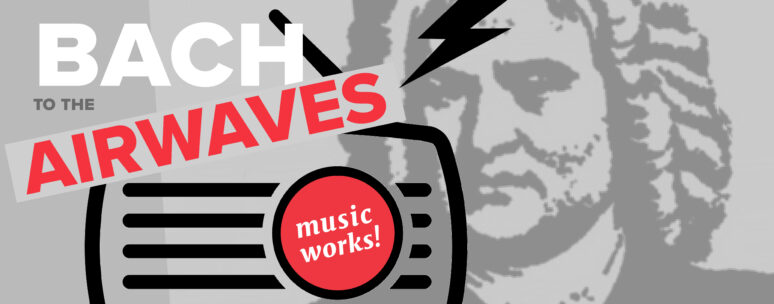Bach Marathon Hour Three: 9pm to 10pm
Your hosts are Kamyron Williams and Mariam
This hour’s lineup, with performer bios and program notes:
Akiko Hatakeyama (Eugene, OR, USA)
Breathe – Sonate e-moll, composed by Akiko Hatakeyama
Akiko Hatakeyama is a composer/performer of electroacoustic music and intermedia. She explores the boundaries between written music, improvisation, electronics, real-time computer-based interactivity, and visual media. Storytelling, memories, and nature play an important role in Akiko’s work, and she most often finds beauty in simplicity. www.akikohatakeyama.com
Desmond Bratton (Providence, RI, USA)
From the archives: Bach to the Future VII (2019)
A.I.M. Cry by Desmond Bratton, composed by Desmond Bratton
Prelude & Allemande from Cello Suite No.1 in Gmajor
Desmond Bratton is a freelance bassist and pedagogue passionate about community engagement through the art of musical conversation. He holds a Masters of Music from Ithaca College, where he received a full assistantship and studied Double Bass Performance with Dr. Nicholas Walker.
Roseminna Watson (Providence, RI, USA)
Passacaglia, composed by Heinrich Ignaz Franz Biber
Dissolve, O My Heart, composed by Missy Mazzoli
Roseminna Watson is most known as a classical violinist, while she continues her life-long exploration of multiple expressive mediums— composition, movement, writing, painting, and video. Fascinated by the human body as a vehicle that can carry us closer to the divine, all Ms. Watson’s expressive creations are imbued with a haunting immediacy and poignant nostalgia. www.roseminnawatson.com, www.pandemicpolyphony.org
David Rubin (Boston, MA, USA)
Grave from Sonata in a minor, BWV 1003
David is a violinist, chamber musician, and teaching artist in Boston, MA. He is the Program Director & Resident Musician at musiConnects, and a former Fellow at Community MusicWorks. David explores place-based chamber music & string education as a means for community-building and creative youth development. He is an active performer in orchestral, chamber, historical instrument, and contemporary music settings.
Hermann Harp Ensemble Tottori (Tottori, Japan)
Jesu, Joy of Man’s Desiring
Yoko Ohashi, Yoko Shiozaki, Sachiko Miyatani
Hermann Harp (Veeh-Harfe) is an instrument invented in 1987 by German farmer Hermann Veeh (“Fee”). His intention was to create an instrument for his son Andreas who had Down Syndrome. The instrument and its special score notation makes it very accessible to people with disabilities, or no previous musical training. It has become popular particularly in Europe and Japan.
Back to the Listening Guide Homepage
